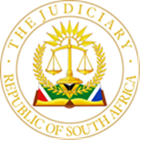REPUBLIC OF SOUTH AFRICA

THE HIGH COURT OF SOUTH AFRICA
GAUTENG DIVISION, PRETORIA
(1) REPORTABLE: (2) OF INTEREST TO OTHER JUDGES (3) 08 January 2024 ______________________ |
CASE NR: 2651/2017
In the matter between:
MAKHAFOLA & VESTER INCORPORATED PLAINTIFF/APPLICANT
and
KUKHANYA MARKETING CC FIRST DEFENDANT / RESPONDENT
MANDLA TIMANA
GAUTENG DEPARTMENT OF ROADS SECOND DEFENDANT / RESPONDENT
AND TRANSPORT
Delivered: This judgment was prepared and authored by the Acting Judge whose name is reflected and is handed down electronically by circulation to the Parties / their legal representatives by email and by uploading it to the electronic file of this matter on CaseLines. The date of the judgment is deemed to be 08 January 2024.
___________________________________________________________________
JUDGMENT
___________________________________________________________________
MARUMOAGAE AJ
A INTRODUCTION
[1] This is an opposed application for leave to amend the plaintiff/applicant’s particulars of claim brought in terms of Rule 28(1) of the Uniform Rules of Court. The court is called upon to determine whether the plaintiff/applicant should be granted leave to amend its particulars of claim. I will refer to the parties as they are referred to in the main action throughout this judgment.
B FACTUAL MATRIX
[2] The plaintiff issued summons out of this court on 16 January 2017. On 12 June 2017, the defendants served their notice of intention to defend. The plaintiff served its notice of bar on 14 July 2017 which led to the defendants serving their plea on 20 July 2017. The plaintiff served its replication to the defendants’ plea on 17 April 2018 even though the actual document is dated 21 August 2017.
[3] On 3 October 2022, the defendants served their notice of intention to amend their plea through an email. It does not appear that the plaintiff objected to this amendment. On 19 October 2022, amended pages were also served by email.
It appears that the applicant applied for a trial date on 25 January 2022, where it was certified among others that the pleadings are closed, and all the discovery is complete. It was also confirmed that the matter was trial ready. The parties held a pre-trial conference on 28 June 2023. The matter was ultimately set down for 16 August 2023.
[4] Before the pre-trial was held, the plaintiff served and uploaded a notice to amend its particulars of claim dated 19 June 2023. In this notice, the plaintiff seeks to insert new subparagraphs 4.8, 4.9, 4.10, 4.11, and 4.12 into its particulars of claim. According to the plaintiff, these subparagraphs are meant to elaborate more on the issues that are in dispute between the parties.
[5] The defendants raised four objections to the plaintiff’s intended amendments. First, the defendants contend that the plaintiff’s amendments are delayed because they are made six years since the summons was issued. Further, the delay is inordinate and would prejudice the defendants. The defendant contend that the plaintiff failed to provide reasons why it took six months to make these amendments. Second, the amendments are made after the pre-trial conference has been held.
[6] Third, the proposed amendments seek to introduce a new cause of action based on payment of service rendered. They are of the view that the claim contained in the amendments has prescribed. According to the defendants, this necessitates that they should completely overhaul their defence to meet the newly formulated cause of action. Fourth, the contemplated amendments will render the plaintiff’s particulars of claim excepiable.
[7] According to the defendants, the proposed amendments and the existing particulars of claim are glaringly incongruous. This renders the intended amendments to lack the necessary averments to sustain a cause of action, alternatively resulting in the particulars of claim being vague and embarrassing. The plaintiff contends that these objections do not have merit and are technical in nature. The defendants deny this contention.
[8] On the one hand, the plaintiff contends that the proposed amendments raise triable issues, and it will be in the best interests of justice and the parties that issues in disputes are fully pleaded in the pleadings. The plaintiff denies that the amendments propose a new cause of action and that the particulars of claim will be excepiable. The plaintiff claims that the proposed amendments are made in good faith and the defendants will suffer no prejudice that cannot be compensated by a costs order.
[9] On the other hand, the defendants contend that the plaintiff’s proposed amendments are an afterthought that has the effect of delaying the finalisation of the main action. The defendants are of the view that the plaintiff ought to have formulated its cause of action in line with the proposed amendments when the summons was first drafted and served. Further, the proposed amendments do not comply with the provisions of Rule 18(6) of the Uniform Rules of Court in that it refers to a tacit or oral or written addendum. The defendants argue that if the addendum was written, the plaintiff ought to have annexed a copy thereof to the particulars of claim.
C APPLICABLE LEGAL PRINCIPLES AND ANALYSIS
[10] In terms of Rule 28(1) of the Uniform Rules of Court:
‘[a]ny party desiring to amend a pleading or document other than a sworn statement, filed in connection with any proceedings, shall notify all other parties of his intention to amend and shall furnish particulars of the amendment’.
[11] The applicant delivered its notice of amendment in accordance with this rule. However, the plaintiff could not effect its intended amendments because the defendants objected in terms of Rule 28(3) of the Uniform Rules of Court. It is quite interesting that the defendants decided to object to the plaintiff’s proposed amendments, among others, based on the fact that these amendments were brought six years from the date the summons was issued.
[12] It is worth noting that in 2022, the defendants amended their plea five (5) years after delivering their plea. After five years since this litigation started, the defendants were not denied the opportunity to place facts before the court that were not provided to the court when they first served and filed their plea.
[13] However, the defendants now argue that the plaintiff should not be granted the same opportunity because it ought to have provided the facts that it seeks to insert into its particulars of claim when it first drafted and served its particulars of claim. The defendants were able to ‘supplement’ their case five years after serving their plea, I doubt that it will be in the interest of justice to deny the plaintiff the same opportunity six years after the summons was served.
[14] Due to the defendants’ objection to the proposed amendments, the plaintiff was forced to approach this court to be granted leave to effect these amendments in terms of Rule 28(9) of the Uniform Rules of court which provides that:
‘[t]he court may, notwithstanding anything to the contrary in this rule, at any stage before judgment grant leave to amend any pleading or document on such other terms as to costs or other matters as it deems fit’.
[15] It is generally accepted that courts have discretion to grant or refuse applications for amendments of pleadings which must be exercised judiciously.1 This requires a careful assessment of the parties' versions to determine whether such amendments are warranted. There is no single decisive factor but all the factors that the parties advance must be adequately balanced.
[16] The main factor that led the plaintiff to amend its pleadings is the desire to place facts that it views as important before the court just like the defendants did with the amendments to their plea. Three main factors that led to the objection of these amendments are that the amendments were done late, they raised a new cause of action and would render the particulars of claim excepiable.
[17] There is nothing that prevents any party from amending their pleadings. This is a procedural step that is also at the plaintiff’s disposal. The defendants also amended their plea late in the proceedings. The argument relating to the new cause of action does not seem like it can be sustained. I am not convinced that with these amendments, the plaintiff seeks to introduce a new cause of action.
[18] I agree with the plaintiff that the proposed amendments seek to clarify its claim against the defendants. In my view, the right that the plaintiff sought to enforce in the original particulars of claim is the same as that which it intends to enforce with the proposed amendments. I am also of the view that there is no merit in the argument that the facts sought to be inserted through the proposed amendments will render the particulars of claim excepiable. To the extent to which the issue of prescription can be raised, I am of the view that it was interrupted by the service of the summons and initial particulars of claim.2
[19] Courts have cautioned that applicants will not be allowed to amend their pleadings by merely applying to do so.3 In Trans - Drakensberg Bank Ltd (Under Judicial Management) v Combined Engineering (Pty) Ltd and Another, it was held that:
‘[s]ome explanation must be offered as to why the amendment is required and if the application for amendment is not timeously made some reasonably satisfactory account must be given for the delay’.4
[20] The plaintiff explained that the proposed amendments will allow issues between the parties to be properly ventilated and the court to determine the real issues between them. It cannot be denied as was stated in Man In One CC v Zyka Trading 100 CC and Others, that the primary object of amendments is to ensure a proper ventilation of the real issues between the parties.5 To refuse the plaintiff to amend its particulars of claim where the defendants already amended the plea a year earlier after five years since they served their plea will not lead to the proper ventilation of the real issues between the parties. This will also not be in the interest of justice.
[21] I agree with the defendants that the plaintiff failed to provide a satisfactory account of why it decided to amend its particulars of claim after six years. The failure to provide a satisfactory explanation for the delay has been used by certain courts to refuse applicants to amend their pleadings.6
[22] I do not think that the facts of this case justify such an outcome, particularly because the defendants also effected their amendments late and were allowed to do so by the plaintiff. This means that they are also responsible for the delays that they claim the plaintiff has caused thus far. The defendants have placed their proper case before the court five years after they filed their plea, it would be unjust to deny the plaintiff the same right.
[23] It is trite that an amendment will always be allowed unless it is made in bad faith and causes an injustice to the other side.7 The Constitutional Court confirmed in Ascendis Animal Health (Pty) Limited v Merck Sharpe Dohme Corporation and Others, that Rule 28 is ‘… an enabling rule and amendments should generally be allowed unless there is good cause for not allowing an amendment’.8
[24] I am not convinced that there is bad faith in the amendments that the plaintiff proposes to make.9 The defendants have already amended their plea in 2022. I am not convinced that there will be any injustice to the defendants should these amendments be allowed.
[25] There is no reason to punish the plaintiff for its neglect in this case.10 When the benefits of allowing the amendments to the particulars of claim are weighed against any prejudice that may be suffered by the defendant, I am of the view that it is in the interests of justice that the amendments be allowed.11
D CONCLUSION
[26] I am of the view that the defendant ought not to have objected to the plaintiff’s proposed amendments because the defendants also amended their plea five years after serving and filing it. However, the fact that the plaintiff failed to explain why it delayed amending its particulars of claim may have justified the defendants’ objecting to the proposed amendments.
ORDER
[27] Consequently, I make the following order:
1. The plaintiff is granted leave to amend its particulars of claim in accordance with its notice of intention to amend dated 19 June 2023.
2. The plaintiff shall deliver its amended pages within five (5) days from the date of this order.
3. Costs shall be costs in the course.

C MARUMOAGAE
ACTING JUDGE OF THE HIGH COURT OF SOUTH AFRICA
GAUTENG DIVISION
PRETORIA
Counsel for the applicant: Adv TC Kwinda
Instructed by: Makhafola & Vester Incorporated
Counsel for the first
and second respondent: Adv M Mapila
Instructed by: Ndumiso Voyi Incorporated
Date of the hearing: 10 October 2023
Date of judgment: 8 January 2023
1 See Embling and another v Two Oceans Aquarium CC [2000] 2 All SA 355 (C) 359.
2 UTi South Africa (Proprietary) Limited v Triple Option Trading 29 CC [2015] JOL 33338 (SCA) paras 6-9. See also Supreme Court of Appeal in CGU Insurance Ltd v Rumdel Construction (Pty) Ltd [2003] 2 All SA 597 (SCA) para 5.
3 See Turner v Bubb 1978 (2) PH F46 (CPD) 46.
4 [1967] 4 All SA 105 (D).
5 (5335/2014) [2022] ZAFSHC 33 (3 March 2022) para 16.
6 See generally Randa v Radopile Projects CC [2012] 4 All SA 434 (GSJ) and Myeni v Organisation Undoing Tax Abuse NPC and others [2019] JOL 46379 (GP).
7 See CPM v NEM [2023] JOL 61608 (GJ) para 20.
8 2020 (1) SA 327 (CC) ; 2020 (1) BCLR 1 (CC); 2019 BIP 34 (CC) para 89.
9 See also Affordable Medicines Trust and Others v Minister of Health and Another 2006 (3) SA 247 (CC); 2005 (6) BCLR 529 (CC) para 9 where it was held that ‘[t]he principles governing the granting or refusal of an amendment have been set out in a number of cases. … The practical rule that emerges from these cases is that amendments will always be allowed unless the amendment is mala fide (made in bad faith) or unless the amendment will cause an injustice to the other side which cannot be cured by an appropriate order for costs, or “unless the parties cannot be put back for the purposes of justice in the same position as they were when the pleading which it is sought to amend was filed’.
10 See Shoprite Checkers (Pty) Ltd v The Trustees for The Time Being of The 3 Broten Trust (39386/2021) [2023] ZAGPJHC 130 (6 February 2023) para 13.
11 Nedbank Limited v Haresh (11969/2015) [2022] ZAKZDHC 19 (11 May 2022) para 24.
Cited documents 5
Judgment 5
- Affordable Medicines Trust and Others v Minister of Health and Another [2005] ZACC 3 (11 March 2005)
- Ascendis Animal Health (Pty) Ltd v Merck Sharpe Dohme Corporation and Others [2019] ZACC 41 (24 October 2019)
- Botha v Commission for Gender Equality and Others (58057/2021) [2023] ZAGPJHC 130 (15 February 2023)
- Khedama v Minister of Police (D 13841/2013) [2022] ZAKZDHC 19 (17 January 2022)
- Letsi v Mepha and Another; In re: Letsi v Mepha and Others (42/2021) [2022] ZAFSHC 33 (13 May 2022)

